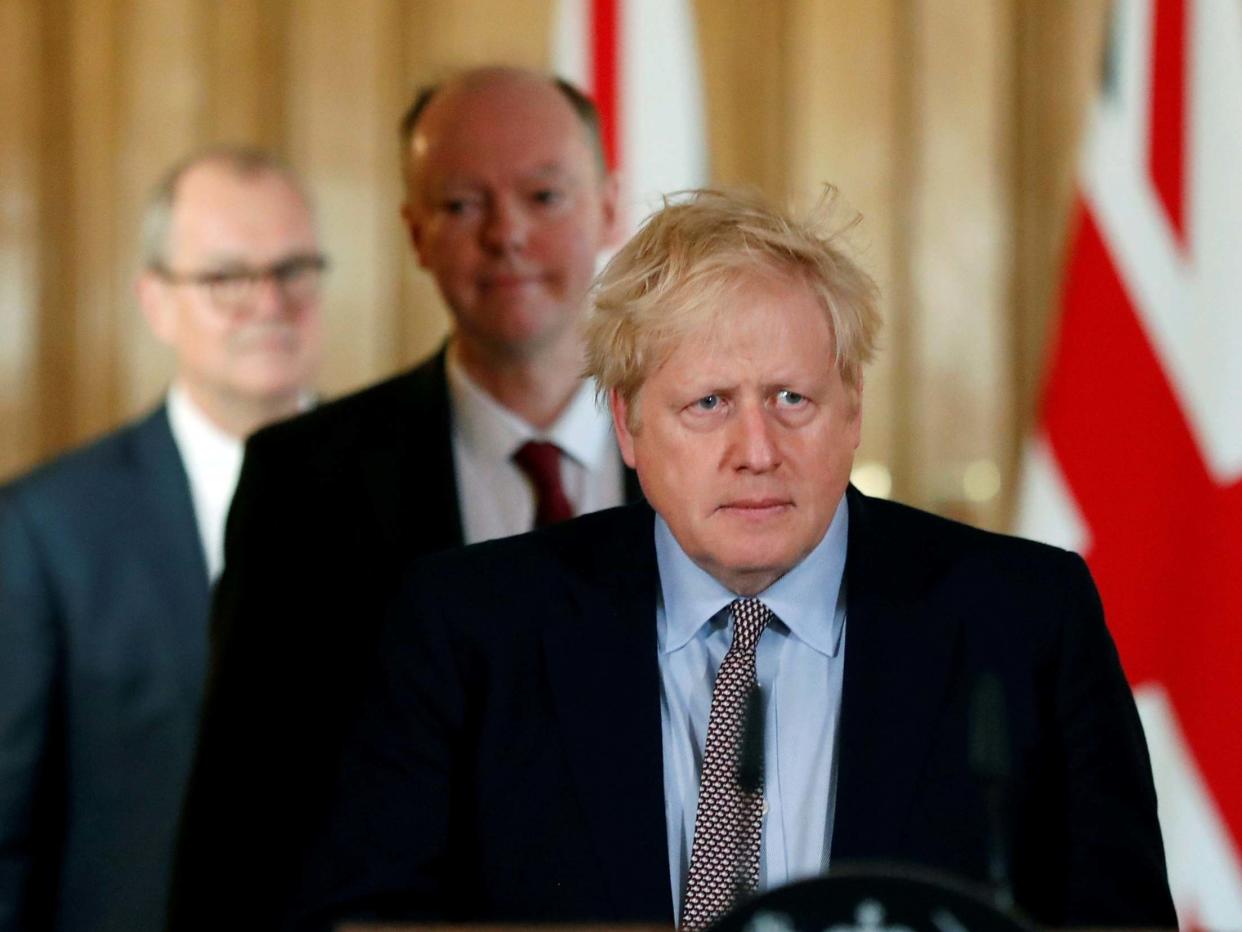Coronavirus: Scientists cast doubt on government ‘nudge’ messaging during outbreak

Researchers have questioned the effectiveness of the government using behavioural science techniques to “nudge” the public into changes during the coronavirus outbreak.
Scientists from King’s College London found that, when used in the context of the pandemic, nudges previously shown to encourage people to act in desired ways did not have the expected effects.
The Behavioural Insights Team (BIT) – known as the “nudge unit” – has helped develop strategy for dealing with the pandemic at the Cabinet Office.
Dr Michael Sanders, reader in public policy at the Policy Institute, King’s College London, said it was “no surprise” governments have turned to behavioural scientists for insights since “controlling the spread of the coronavirus pandemic is as much about human behaviour”.
Urging caution, he added: “Across two papers and six studies, our new findings cast doubt on the actual impacts of some of the most commonly used tools in the context of this crisis.”
In the first study, published in the peer-reviewed journal Economic Letters, researchers tested so-called “loss aversion” messages – the idea that people value losses more than they do gains of equivalent size.
A group of 500 people were randomly assigned to be shown one of two messages, presented as government information posters. Contrary to loss aversion theory, the researchers found highlighting potential lives lost did not make people more cautious about ending lockdown measures.
They said this may be because the participants were already familiar with the large death toll for Covid-19, with and without lockdown measures.
In a second study, currently under peer review, the researchers carried out a series of experiments testing a different set of nudges in April, May and June.
According to the research, while nudges increased respondents’ intention to comply with a series of health guidelines to tackle Covid-19, they did not have the expected result of actually changing their behaviour.
The study states: “We can only conclude that nudges activate good intentions, but people find it hard to follow through because of all the other influences on their behaviour that crowd out nudges on this occasion.”
The idea of basing big political decisions on “nudge” theory has proved controversial. Experts have criticised an apparent guess made by No 10’s closest advisers in the early weeks of March that the public would not stick with lockdown rules for a long period of time.
On 9 March, chief medical officer Professor Chris Whitty said: “There is a risk if we go too early people will understandably get fatigued and it will be difficult to sustain this over time.”

Professor Robert West, member of the government’s Scientific Pandemic Influenza Group on Behaviours (SPI-B), has denied the idea of “lockdown fatigue” came from his group.
“There’s no science behind the idea of behavioural fatigue,” he recently told BBC’s Newsnight. “I couldn’t blame someone like Chris [Whitty] for bringing up this notion. But at a very early stage the government should have said, “Actually that’s not a thing”.”
Officials at the Behavioural Insights Team (BIT) – the so-called “nudge unit” – have also denied the idea of “fatigue” came from them.
A BIT spokesperson said the team had “categorically never proposed or suggested behavioural fatigue with respect to Covid-19”.
Read more
Inside the UK government’s influential behavioural ‘nudge unit’
What are the UK lockdown rules now?
How to ease yourself back into socialising once lockdown lifts

 Yahoo News
Yahoo News 
